Xiaoyuan Yao
Progressive Open-Domain Response Generation with Multiple Controllable Attributes
Jun 07, 2021
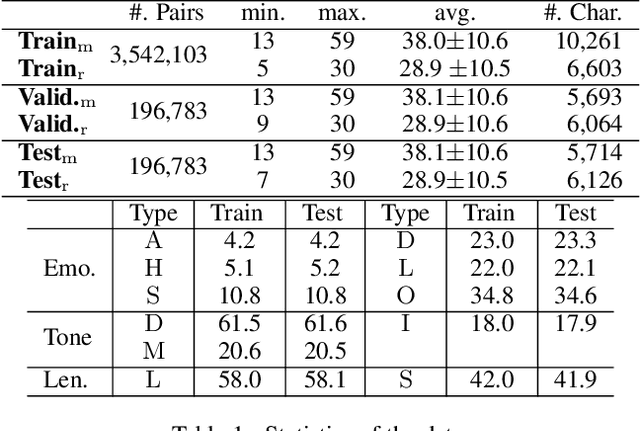
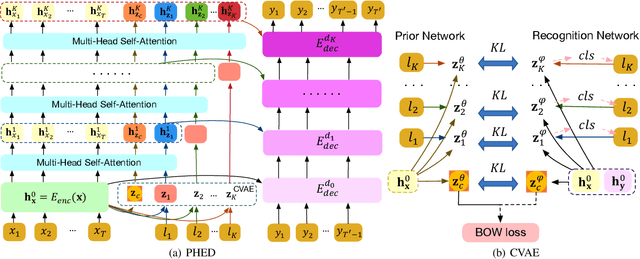
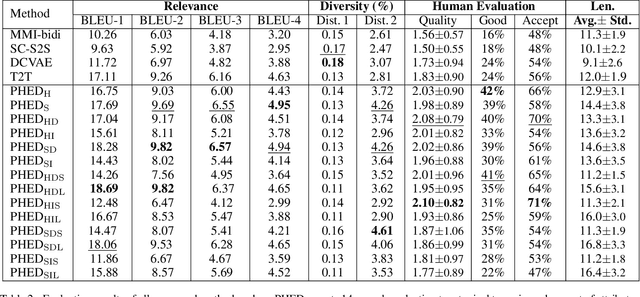
Abstract:It is desirable to include more controllable attributes to enhance the diversity of generated responses in open-domain dialogue systems. However, existing methods can generate responses with only one controllable attribute or lack a flexible way to generate them with multiple controllable attributes. In this paper, we propose a Progressively trained Hierarchical Encoder-Decoder (PHED) to tackle this task. More specifically, PHED deploys Conditional Variational AutoEncoder (CVAE) on Transformer to include one aspect of attributes at one stage. A vital characteristic of the CVAE is to separate the latent variables at each stage into two types: a global variable capturing the common semantic features and a specific variable absorbing the attribute information at that stage. PHED then couples the CVAE latent variables with the Transformer encoder and is trained by minimizing a newly derived ELBO and controlled losses to produce the next stage's input and produce responses as required. Finally, we conduct extensive evaluations to show that PHED significantly outperforms the state-of-the-art neural generation models and produces more diverse responses as expected.
An End-to-End Dialogue State Tracking System with Machine Reading Comprehension and Wide & Deep Classification
Feb 02, 2020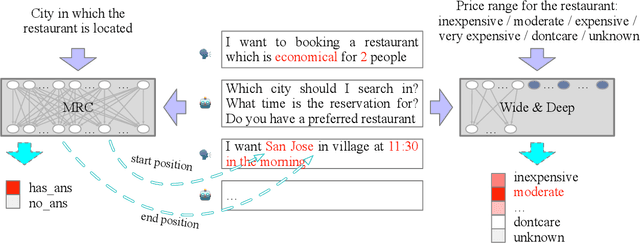

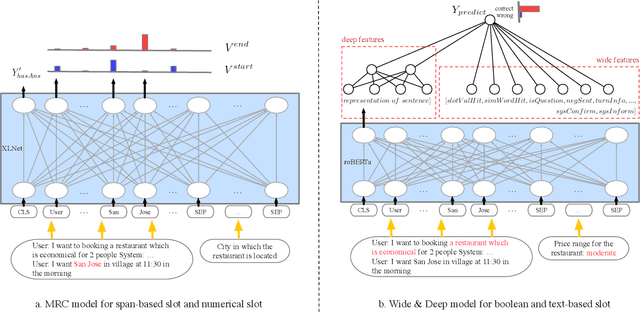
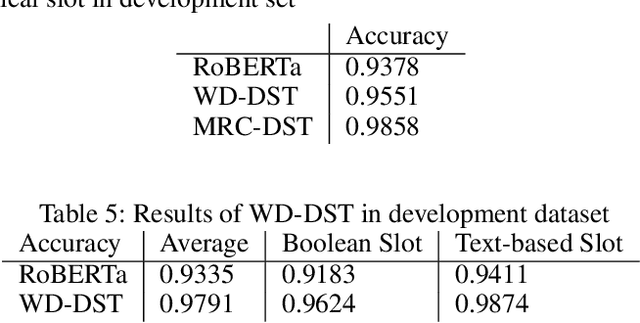
Abstract:This paper describes our approach in DSTC 8 Track 4: Schema-Guided Dialogue State Tracking. The goal of this task is to predict the intents and slots in each user turn to complete the dialogue state tracking (DST) based on the information provided by the task's schema. Different from traditional stage-wise DST, we propose an end-to-end DST system to avoid error accumulation between the dialogue turns. The DST system consists of a machine reading comprehension (MRC) model for non-categorical slots and a Wide & Deep model for categorical slots. As far as we know, this is the first time that MRC and Wide & Deep model are applied to DST problem in a fully end-to-end way. Experimental results show that our framework achieves an excellent performance on the test dataset including 50% zero-shot services with a joint goal accuracy of 0.8652 and a slot tagging F1-Score of 0.9835.
 Add to Chrome
Add to Chrome Add to Firefox
Add to Firefox Add to Edge
Add to Edge